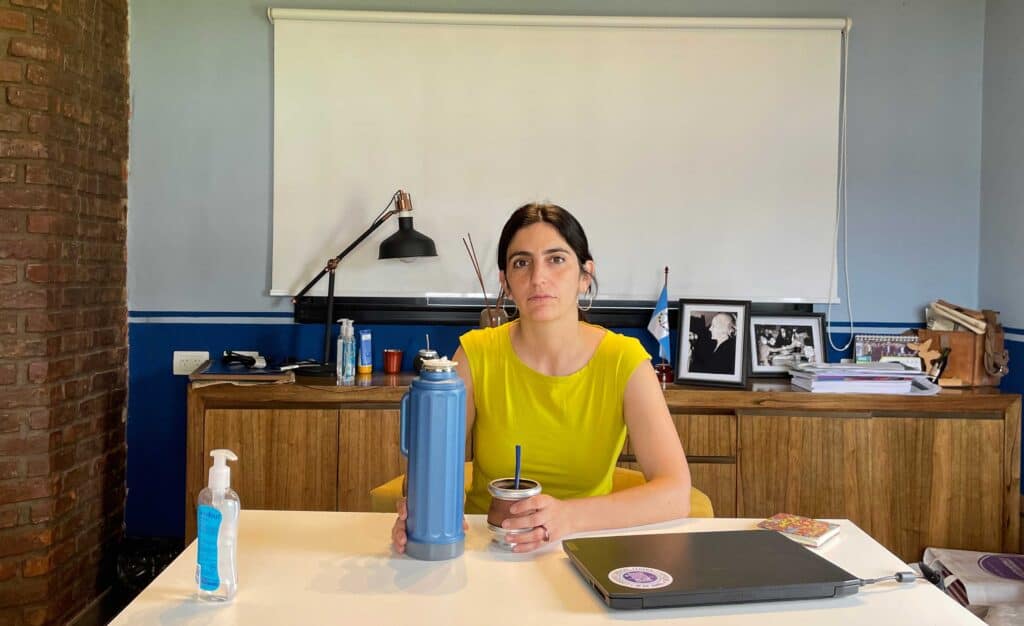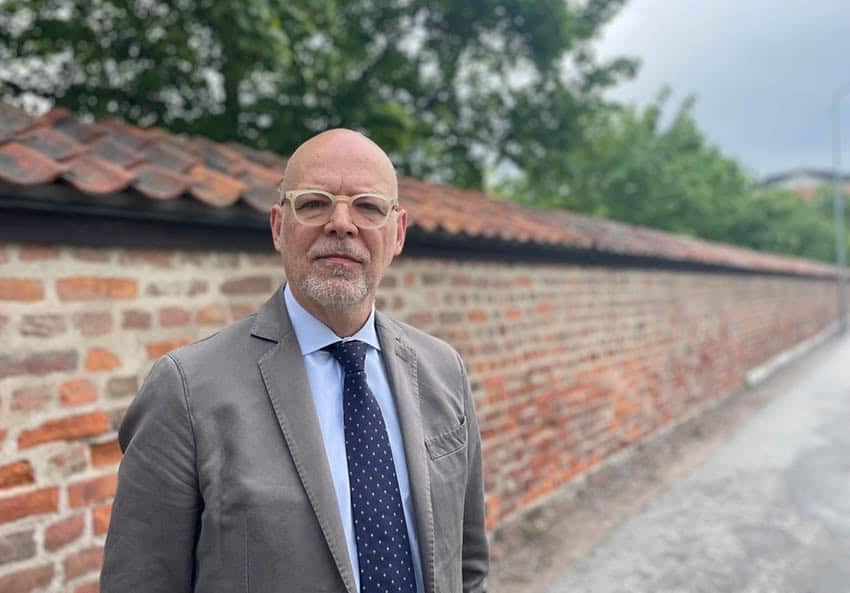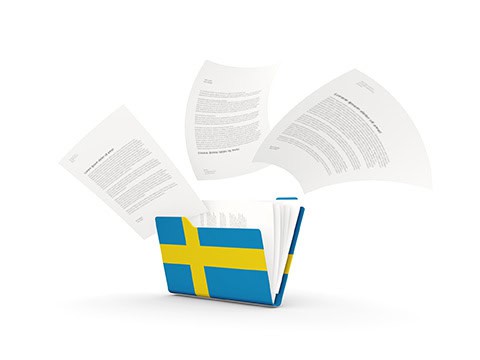It is one of the last days of term before the summer break at Universidad Nacional Arturo Jauretche in the Buenos Aires municipality of Florencio Varela. History teacher Clara Chevalier is running between end-of-term celebrations and leaving parties.
Despite a certain cheerfulness and her long-awaited holiday approaching, she is worried.
“We are surrounded by uncertainty ahead of next term. The only thing we know is that things will get worse,” she says as she pours water into her mate cup.
New president wants a new system
When Universitetsläraren meets Chevalier, who in addition to teaching history is also chair of the local trade union association ADEIUNAJ, which is affiliated to the university teachers’ union CONADU, four days have passed since the anarcho-capitalist politician Javier Milei was sworn in as President of Argentina.
“Although Milei has not yet presented an overall economic plan, we all know what his views on state education are,” she tells us.
“During his election campaign, he talked about privatising universities and introducing a voucher system, where each student receives an individual budget for education and where education is governed by demand, not supply.”
Unions protested
She believes Milei’s proposals would have disastrous consequences for the students at her higher education institution, which is one of several state universities that opened in densely populated suburbs of Buenos Aires when Argentina celebrated its 200th anniversary as a republic in 2010.
“Before the presidential election, all unions that organise teachers and educators – from preschool to university – joined together and created a campaign here in Florencio Varela, which is a socio-economically deprived area, to draw attention to and defend Argentina’s long-standing and well-functioning tradition of free state education,” says Chevalier.
“For our students, who in many cases are the first in their families to study at university and who often have to combine their studies with full-time jobs, it is crucial that there is a university nearby that offers a variety of free courses. To see that opportunity, and thus our students’ futures, being threatened is extremely worrying.”
Concerned about funding
Clara Chevalier’s concern is shared by Jorge Calzoni, Vice-chancellor of the Universidad Nacional de Avellaneda, which is a state university in another Buenos Aires’ suburb.
“Apart from Milei’s plans to privatise the universities, I am worried that we will not get increased state funding next year, even though inflation is now over 200 per cent at the end of the year. This also means that teachers’ salaries will remain at 2023 levels, even though prices have increased enormously and the new government has already removed subsidies for electricity, fuel and public transport,” says Calzoni.
“They also seem to want to put a stop to all kinds of renovation and new construction work at state universities, even though they are badly needed,” he continues.

Jorge Calzoni
Vice-chancellor, Universidad Nacional de Avellaneda
Daily protests
Just over a week after Universitetsläraren met Jorge Calzoni and Clara Chevalier, Argentina’s new government shut down the Ministry of Education and presented several policy proposals that met with massive popular opposition and daily street protests. One of them is called ”Protocolo Antipiquete”, which involves major restrictions on freedom of expression, freedom of assembly and the right demonstrate.
But what has met with the strongest criticism is President Milei’s ”emergency decree”, with over 300 measures to deregulate the economy, including abolition of rent controls, the selling-off of state-owned enterprises, erosion of labour rights, mass redundancies and cuts in the public sector.
Preparing for a demonstration
Clara Chevalier is actually on annual holiday leave, but she has spent a large part of the Christmas period on trade union work and telephone calls with colleagues following the launch of the president’s emergency decree.“This is worse than we could have imagined,” she says. “not only is the voucher system now being discussed seriously, we now also know that we will receive the same level of funding as in January 2023, which is so little money that several universities are now warning that they will not be able to start teaching at the start of the term in March.”
“Both my local association and our entire union are actively involved in the protests against Milei’s actions, and we are now preparing for a large demonstration together with other unions on 24 January.”

















